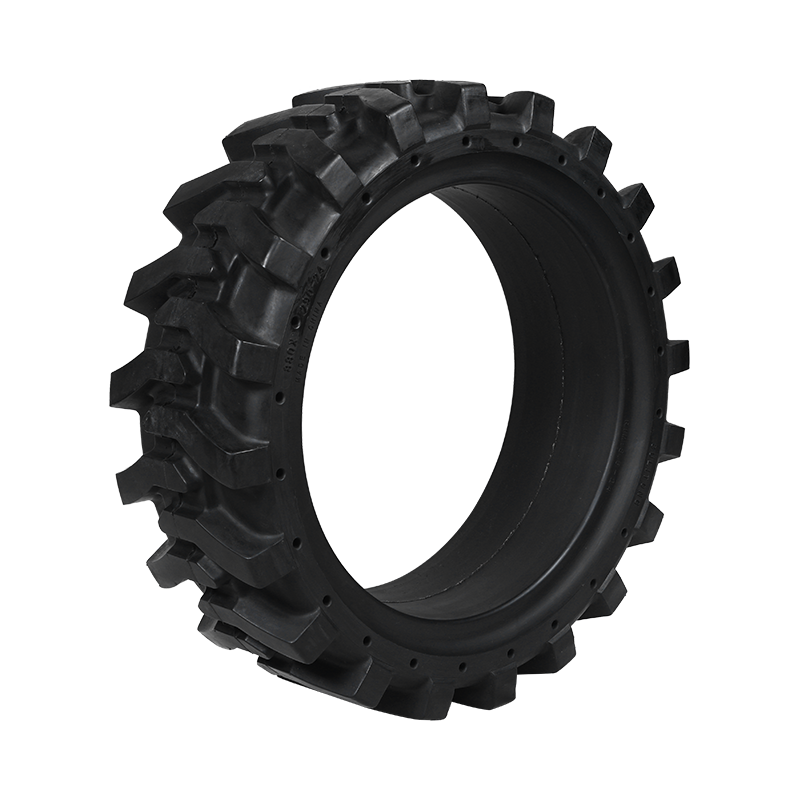Navigating the Terrain: Why Skid Steer Tires Are the Unsung Heroes of Heavy-Duty Work
When it comes to heavy machinery, skid steers are the jack-of-all-trades workhorses found on construction sites, farms, and even suburban driveways. These compact machines are beloved for their versatility, agility, and ability to tackle a wide range of tasks—from digging trenches to clearing snow. But what often goes unnoticed is the critical role that skid steer tires play in making these machines as effective as they are. Without the right tires, even the most powerful skid steer can struggle to perform or worse, become a liability on the job.
Skid steer tires are more than just rubber meeting the ground; they’re the unsung heroes that determine how well your machine performs across different terrains and conditions. Whether you're navigating muddy fields, rocky landscapes, or delicate turf, the choice of tire can make or break your project—and sometimes even your budget.
The Importance of Tire Selection
One of the first things to consider when outfitting a skid steer is the type of tire best suited for the task at hand. There are generally three main types of skid steer tires: pneumatic (air-filled), solid, and foam-filled. Each has its own strengths and ideal applications.
Pneumatic tires are lightweight and provide excellent traction, making them perfect for soft soil, sand, or loose gravel. However, they’re prone to punctures, which can be a major inconvenience if you're working in areas littered with sharp debris like nails or glass. For this reason, many operators opt for foam-filled tires, which offer the same flexibility and shock absorption but eliminate the risk of flats. On the other hand, solid tires are virtually indestructible, making them ideal for harsh environments like demolition sites or recycling centers where sharp objects are everywhere. They may lack some of the cushioning of pneumatic options, but their durability is unmatched.
Tread Patterns Matter
Beyond the material and structure of the tire, tread patterns also play a crucial role in performance. A deep lug tread pattern is great for muddy or uneven surfaces because it provides superior grip and self-cleaning capabilities. Meanwhile, a smoother tread design works better on hard surfaces like asphalt or concrete, ensuring minimal damage to paved areas while still offering stability. For those working in sensitive environments like golf courses or residential lawns, turf tires with minimal tread disturbance are essential to avoid leaving ruts or damaging grass.
Choosing the wrong tread pattern can lead to inefficiencies or even accidents. Imagine trying to move a load of dirt on wet clay soil with slick, shallow treads—you’d likely spend more time spinning your wheels than actually getting the job done. Conversely, using aggressive lugged tires on a finished driveway could leave behind unsightly marks or gouges, costing you time and money to repair.

Maintenance and Longevity
Like any other component of heavy equipment, skid steer tires require regular maintenance to ensure optimal performance and longevity. Checking tire pressure (for pneumatic models) regularly helps prevent blowouts and uneven wear. Inspecting tires for cuts, bulges, or embedded debris is equally important, especially after working in challenging conditions. Even small issues left unaddressed can escalate quickly, leading to costly replacements or downtime.
For solid and foam-filled tires, keeping an eye out for excessive chunking or cracking is key. While these tires are built tough, they aren’t invincible. Harsh chemicals, extreme temperatures, and prolonged exposure to sunlight can degrade the rubber over time, reducing their lifespan. Proper storage and cleaning go a long way toward extending the life of your tires.
Cost vs. Value
It’s tempting to cut corners by opting for cheaper tires, but this decision often backfires. Lower-quality tires may save money upfront, but they tend to wear out faster and provide inferior performance, ultimately costing more in the long run. Investing in high-quality skid steer tires tailored to your specific needs not only improves efficiency but also reduces the frequency of replacements. Think of it as paying for reliability and peace of mind rather than gambling on subpar products.
CONTACT US
-

Email: SMT001@saimeite-tyre.com
-

Phone: +86-18451337018No. 1, Renmin South Road, Yandu District, Yancheng City, Jiangsu Province, China

 English
English 한국어
한국어 Français
Français Español
Español











